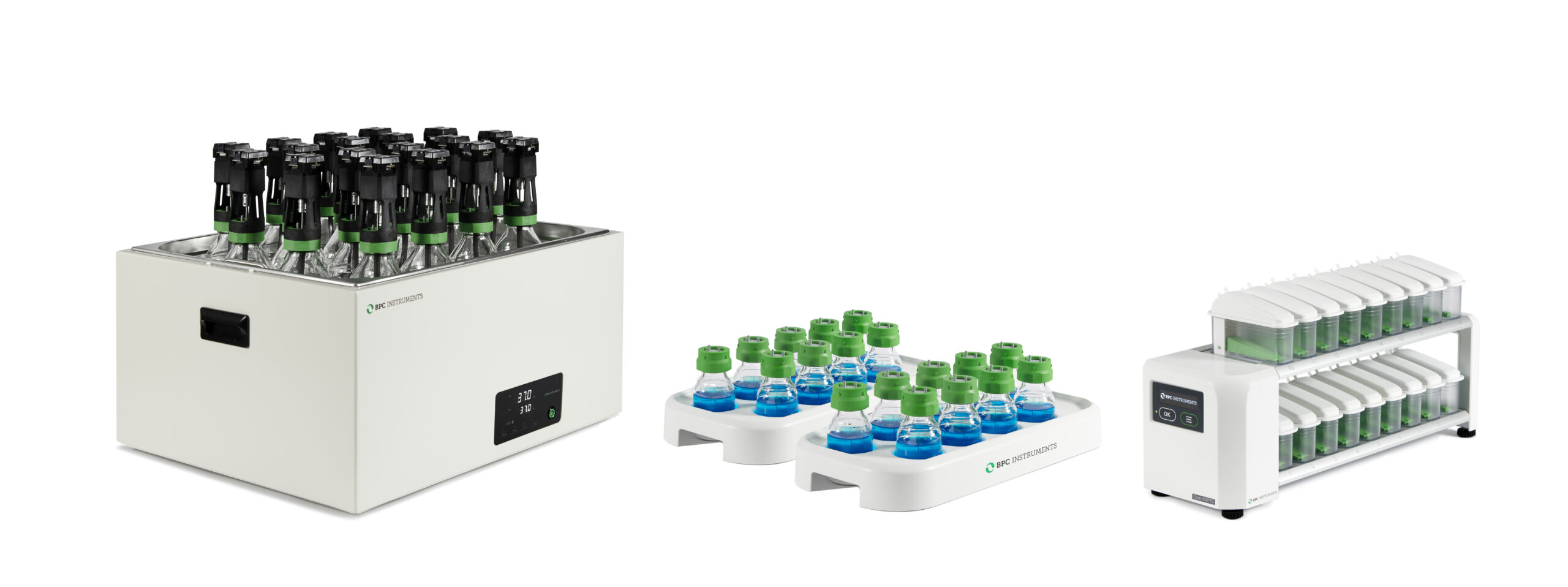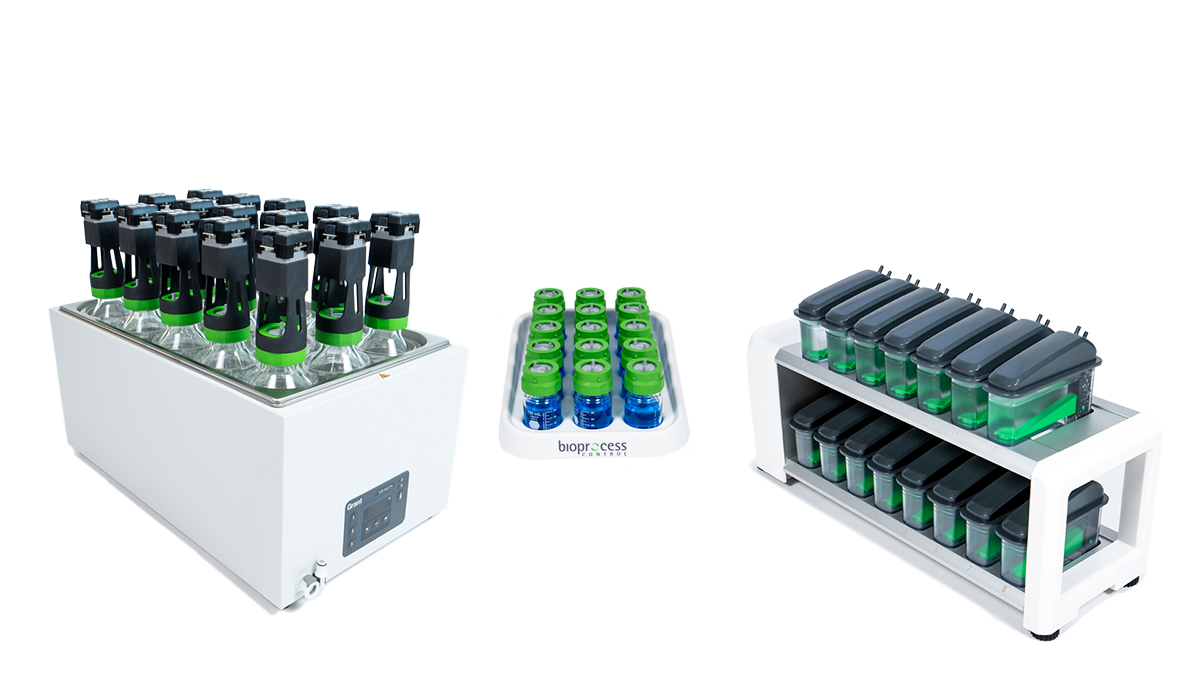Evaluation of the remaining biogas production capacity and methane emissions
The residual gas potential (RGP) or residual biogas potential (RBP) test is designed to measure the stability of digestate samples under anaerobic conditions. Stability is assessed by the measurement of the total quantity of biogas produced by the digestate sample during a specified period of time, which is an indicator of its residual biodegradability.
The test involves placing the digestate, along with excess nutrients and microorganisms, in laboratory reactors and measuring the biogas production for a pre-defined time period (such as 28 days) at an average mesophilic (37 °C ± 1 °C) or average thermophilic temperature (55 °C ± 1 °C). When investigating the residual gas potential at reduced temperatures (psychrophilic condition), this test procedure can be carried out at room temperature, i.e., 20 °C ± 1 °C.
Determining the residual gas potential of the digestate of a biogas plant can answer the following questions:
- What quantity of biogas or methane is lost after leaving the gas-tight part of the biogas plant?
- How large is the emission potential?
AMPTS® III and AMPTS® III Light are well-recognized and the recommended laboratory platforms according to the German norm VDI 4630 and several international laboratory protocols for conducting biochemical methane potential or biomethane potential (BMP), specific methanogenic activity (SMA), residual gas potential (RGP) and biohydrogen potential analyses.
Gas Endeavour® allows for continuous and on-line monitoring of released biogas (CH4 and CO2) under the all possible test conditions. The instrument offers standardized measurement procedures, data interpretations and reports. It is the perfect analytical tool for residual gas potential (RGP) or residual biogas potential (RBP) assay with highly precise and accurate data.



